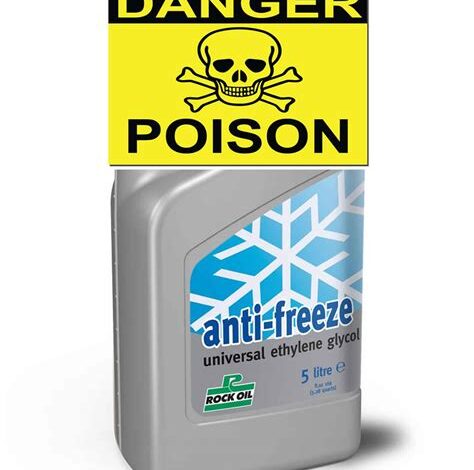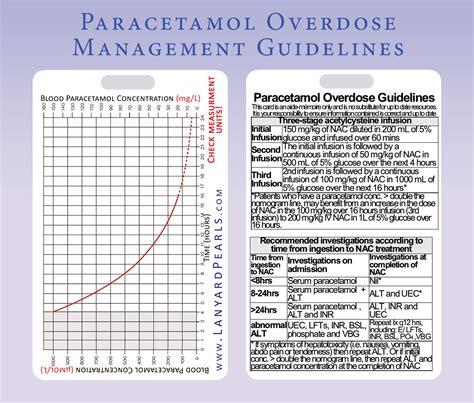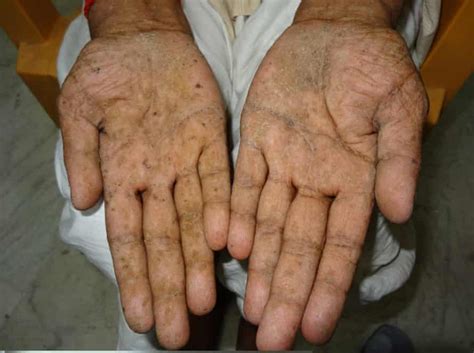
Boric Acid Poisoning Signs and Symptoms
Boric Acid Poisoning Signs and Symptoms
Boric acid is a compound commonly found in household products such as pesticides, ant baits, herbicides, and disinfectants. It has several uses, including pest control, wood preservation, and laundry detergents, among others. However, despite its many benefits, boric acid can be toxic if ingested or absorbed into the body.
Boric acid poisoning occurs when someone ingests or inhales too much of the substance. The severity of symptoms depends on the amount ingested, the age and weight of the person, and the duration of exposure. The signs and symptoms of boric acid poisoning are varied and can range from mild to severe.
One of the most common symptoms of boric acid poisoning is gastrointestinal distress. This includes nausea, vomiting, abdominal pain, and diarrhea. These symptoms may be accompanied by dehydration, which can lead to dizziness, weakness, and headache.
Another symptom of boric acid poisoning is skin irritation. Direct contact with boric acid can cause redness, itching, and burning sensation on the skin. If left untreated, it can lead to blistering and peeling of the skin.
In severe cases of boric acid poisoning, neurological symptoms may occur. These include confusion, seizures, tremors, and loss of consciousness. Children are particularly vulnerable to these symptoms and may experience convulsions and respiratory distress.
If you suspect that you or someone you know has been exposed to boric acid, seek medical attention immediately. Treatment for boric acid poisoning may include inducing vomiting, administering activated charcoal, and providing supportive care such as intravenous fluids and oxygen therapy.
To prevent boric acid poisoning, it is essential to read and follow the label instructions carefully when using products containing the substance. Keep them out of reach of children and pets, and store them properly. If you have any doubts or questions about the use of boric acid, consult a medical professional or poison control center. Remember to always practice safety measures and use caution when handling potentially dangerous substances.
Signs and Symptoms of Mild Boric Acid Poisoning
Boric acid is a white, crystalline substance that is often used in the manufacturing of various household products, such as insecticides, antiseptics, and glass. When ingested or absorbed through the skin, boric acid can become toxic to the body, causing mild to severe symptoms depending on the amount and duration of exposure.
Mild boric acid poisoning can occur when small amounts of the substance are ingested or absorbed through the skin. Some of the common signs and symptoms of mild boric acid poisoning include nausea, vomiting, diarrhea, abdominal pain, and headache. These symptoms can appear within hours or days of exposure, and may persist for several days or weeks.
In addition to gastrointestinal symptoms, mild boric acid poisoning can also cause skin irritation, redness, and itching. This is particularly true for individuals who have sensitive skin or are allergic to boric acid. Eye irritation and redness can also occur if the substance comes into contact with the eyes.
If you suspect that you or someone you know has been exposed to boric acid, it is important to seek medical attention immediately. Mild boric acid poisoning can be treated through supportive care, which may include measures like hydration, rest, and monitoring of vital signs. In more severe cases, hospitalization may be necessary to manage symptoms and prevent complications.
To avoid boric acid poisoning, it is important to handle the substance with care and follow all safety precautions when using products that contain boric acid. This includes wearing protective clothing, gloves, and eyewear when handling boric acid, storing the substance out of reach of children and pets, and ensuring proper ventilation when using products that contain boric acid.
In conclusion, mild boric acid poisoning can cause a range of symptoms, including nausea, vomiting, diarrhea, abdominal pain, and skin irritation. If you suspect that you or someone you know has been exposed to boric acid, seek medical attention immediately. To prevent boric acid poisoning, take precautions when handling the substance and using products that contain it. Remember, safety always comes first.
Symptoms of Severe Boric Acid Poisoning
Boric acid is a chemical compound that is commonly used in many household products, including insecticides, antiseptics, and cleaning agents. While it can be effective for its intended purposes when used appropriately, boric acid can be extremely dangerous if ingested or exposed to the skin in large amounts. In severe cases, boric acid poisoning can even be fatal.
Symptoms of severe boric acid poisoning can vary depending on the amount of boric acid that has been ingested or exposed to the body. The initial symptoms may include a burning sensation in the mouth, throat, and stomach, which can be accompanied by nausea, vomiting, and diarrhea. These symptoms typically appear within a few hours after exposure to boric acid.
As the poisoning progresses, more severe symptoms may develop, including difficulty breathing, chest pain, dizziness, confusion, and seizures. These symptoms can indicate that the boric acid has spread throughout the body and is affecting multiple organs, including the lungs, heart, and brain.
In extreme cases, boric acid poisoning can lead to coma and death. It is important to seek medical attention immediately if you suspect that you or someone you know has been exposed to boric acid in large amounts. Early treatment can help prevent the progression of symptoms and improve the chances of a full recovery.
Preventing boric acid poisoning is essential, and it starts with being aware of the potential dangers associated with this substance. Always read labels carefully before using any product that contains boric acid, and follow all safety instructions. Keep boric acid-containing products out of reach of children and pets, and store them in a secure location. If you experience any symptoms of boric acid poisoning, seek medical attention right away.
In conclusion, severe boric acid poisoning can be a dangerous and potentially life-threatening condition. Symptoms can range from mild to severe, and it is important to seek medical attention immediately if exposure is suspected. By being aware of the potential dangers associated with boric acid and taking appropriate safety measures, you can help protect yourself and your loved ones from this hazardous substance.
Diagnosis of Boric Acid Poisoning
Boric acid poisoning is a serious condition that can have severe consequences if left untreated. Boric acid, also known as hydrogen borate, is often found in household products such as insecticides and cleaning agents. It can also be found in some medications, topical ointments, and eye drops. While boric acid is generally safe when used in appropriate amounts, accidental or intentional ingestion can lead to toxicity.

Symptoms of boric acid poisoning can range from mild to severe depending on the amount ingested and the duration of exposure. Mild symptoms may include nausea, vomiting, abdominal pain, and diarrhea. More severe symptoms may include convulsions, seizures, coma, and death. Immediate medical attention is necessary if any of these symptoms occur.

Diagnosis of boric acid poisoning typically involves a thorough physical examination and an assessment of the patient’s medical history. Blood and urine tests may also be ordered to confirm the presence of boric acid in the body. In cases where ingestion is suspected, imaging studies such as x-rays or CT scans may be performed to assess the extent of damage to internal organs.
Treatment for boric acid poisoning may involve supportive care such as intravenous fluids and oxygen therapy. In more severe cases, antidotes such as sodium bicarbonate may be administered to neutralize the acid. Patients who have ingested large amounts of boric acid may require hospitalization and close monitoring.
Prevention of boric acid poisoning involves proper storage and labeling of household products containing boric acid. Keep products containing boric acid out of reach of children and pets. Be sure to read and follow all product labels and warnings. Avoid using boric acid in home remedies or as a food preservative.
In conclusion, boric acid poisoning is a serious condition that requires prompt diagnosis and treatment. If you suspect that you or someone you know has ingested boric acid, seek immediate medical attention. Prevention is key in avoiding accidental poisoning, so be sure to take appropriate precautions when using products containing boric acid.
Treatment for Boric Acid Poisoning
Boric acid is often used in household products such as insecticides, antiseptics, and cleaning agents. Although it is generally considered safe, excessive exposure to boric acid can lead to poisoning, which can be dangerous if left untreated. In this article, we will explore the symptoms of boric acid poisoning and the various treatment options available.
Symptoms of Boric Acid Poisoning:
The symptoms of boric acid poisoning can vary depending on the amount of exposure and the individual’s age and general health. Some common symptoms include vomiting, diarrhea, abdominal pain, rash, cough, and fever. Other symptoms may include confusion, dizziness, weakness, seizures, and respiratory distress. If you suspect that you or someone you know has been exposed to boric acid and is experiencing any of these symptoms, seek medical attention immediately.
Treatment for Boric Acid Poisoning:

The initial treatment for boric acid poisoning involves removing any contaminated clothing and washing the affected area with soap and water. If the substance was ingested, the person should drink milk or water to help dilute the poison and induce vomiting. Activated charcoal may also be given to absorb any remaining boric acid in the stomach.
In more severe cases of boric acid poisoning, hospitalization may be necessary. The individual may receive intravenous fluids to prevent dehydration and medication to control seizures or other symptoms. It is important to note that there is no specific antidote for boric acid poisoning, so treatment focuses on managing symptoms and preventing complications.
Preventing Boric Acid Poisoning:
To prevent boric acid poisoning, it is important to use household products containing boric acid as directed. Keep these products out of reach of children and pets, and avoid using them in areas where food is prepared or consumed. If working with boric acid directly, wear protective gloves, goggles, and a mask to avoid ingestion or inhalation.
In conclusion, boric acid poisoning can be a serious issue if left untreated. If you suspect that you or someone you know has been exposed to boric acid and is experiencing symptoms, seek medical attention immediately. By taking steps to prevent exposure, you can reduce the risk of poisoning and ensure the safety of yourself and your loved ones.
Prevention of Boric Acid Poisoning
Boric acid, a white crystalline substance, is commonly used in households as a disinfectant, insecticide, and preservative. However, when ingested in large amounts, it can be toxic to human beings, particularly children and pets. As such, it is crucial to take the necessary precautions to prevent boric acid poisoning.
The first step in preventing boric acid poisoning is to ensure that products containing boric acid are stored in locked cabinets or out of reach of children and pets. This includes items such as ant baits, flea powders, and cleaning products. Additionally, it is important to read product labels carefully and follow usage instructions to avoid accidental ingestion or overexposure.
Another key preventative measure is to keep boric acid products away from food and cooking utensils to avoid contamination. When using boric acid for pest control, it is best to apply it in areas that are inaccessible to children and pets, such as under appliances or behind furniture.
In case of accidental ingestion, it is essential to seek medical attention immediately. Symptoms of boric acid poisoning may include vomiting, diarrhea, abdominal pain, weakness, and seizures. Early intervention can help prevent serious complications or even death.
Lastly, if you suspect that your child or pet has ingested boric acid, do not induce vomiting. Instead, contact a poison control center or emergency medical services for guidance on what to do next.
In conclusion, boric acid can be hazardous when not handled properly, but with the right precautions, poisoning can be prevented. By storing products safely, following usage instructions, and seeking medical attention in case of accidental ingestion, we can effectively protect ourselves, our children, and our pets from harm.
When to Seek Medical Attention for Boric Acid Poisoning
Boric acid is a common ingredient in many household and industrial products, such as insecticides, antiseptics, and cleaning agents. While it can be useful in small doses, exposure to high levels of boric acid can be toxic and cause serious health problems.
If you suspect that you or someone you know has been exposed to boric acid, it’s important to seek medical attention immediately. The symptoms of boric acid poisoning can vary depending on the amount of exposure and the age and overall health of the person affected.
In mild cases of boric acid poisoning, symptoms may include nausea, vomiting, diarrhea, and abdominal pain. These symptoms may occur within hours of exposure and can typically be treated with supportive care, such as rehydration and rest.
However, in more severe cases, boric acid poisoning can cause neurological symptoms, including confusion, seizures, and coma. Respiratory distress and kidney failure may also occur in severe cases.
If you or someone you know experiences any of these symptoms after exposure to boric acid, seek medical attention immediately. It’s important to provide as much information as possible about the type and amount of exposure to help healthcare professionals determine the best course of treatment.
Treatment for boric acid poisoning may include decontamination, such as washing the affected area, and administration of activated charcoal. In more severe cases, hospitalization and supportive care, such as oxygen therapy and intravenous fluids, may be necessary.
Prevention is the key to avoiding boric acid poisoning. Keep products containing boric acid out of reach of children and pets, wear appropriate protective gear when working with boric acid-containing products, and follow all safety guidelines and instructions carefully.
In conclusion, boric acid poisoning can be dangerous and should be taken seriously. If you suspect that you or someone you know has been exposed to boric acid, seek medical attention immediately to prevent further complications and ensure a quick recovery.


